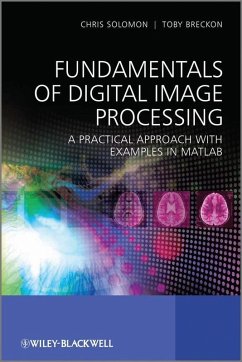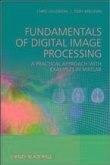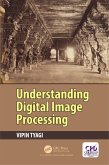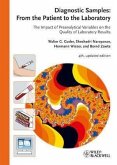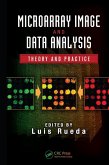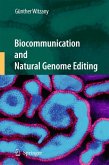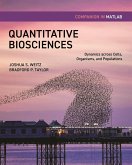This is an introductory to intermediate level text on the science of image processing, which employs the Matlab programming language to illustrate some of the elementary, key concepts in modern image processing and pattern recognition. The approach taken is essentially practical and the book offers a framework within which the concepts can be understood by a series of well chosen examples, exercises and computer experiments, drawing on specific examples from within science, medicine and engineering. Clearly divided into eleven distinct chapters, the book begins with a fast-start introduction to image processing to enhance the accessibility of later topics. Subsequent chapters offer increasingly advanced discussion of topics involving more challenging concepts, with the final chapter looking at the application of automated image classification (with Matlab examples) . Matlab is frequently used in the book as a tool for demonstrations, conducting experiments and for solving problems, as it is both ideally suited to this role and is widely available. Prior experience of Matlab is not required and those without access to Matlab can still benefit from the independent presentation of topics and numerous examples. * Features a companion website href="http://www.wiley.com/go/solomon/fundamentals">www.wiley.com/go/solomon/fundamentals containing a Matlab name="_GoBack">fast-start primer, further exercises, examples, instructor resources and accessibility to all files corresponding to the examples and exercises within the book itself. * Includes numerous examples, graded exercises and computer experiments to support both students and instructors alike.
Dieser Download kann aus rechtlichen Gründen nur mit Rechnungsadresse in A, B, BG, CY, CZ, D, DK, EW, E, FIN, F, GR, HR, H, IRL, I, LT, L, LR, M, NL, PL, P, R, S, SLO, SK ausgeliefert werden.
"For undergraduate and graduate students as well as professionals, Solomon (physical sciences, U. of Kent, UK) and Breckon (engineering, Cranfield U., UK) provide a simple introduction to the science of modern image processing and pattern recognition, their key concepts and techniques, and theory." -- Booknews, 1 April 2011
"Given the timely topic and its user-friendly structure, this book can therefore target a suite of users, from students to experienced researchers willing to integrate the science of image processing to strengthen their research." (Ethology Ecology & Evolution, 1 May 2013) "For undergraduate and graduate students as well as professionals, Solomon (physical sciences, U. of Kent, UK) and Breckon (engineering, Cranfield U., UK) provide a simple introduction to the science of modern image processing and pattern recognition, their key concepts and techniques, and theory." (Booknews, 1 April 2011)

